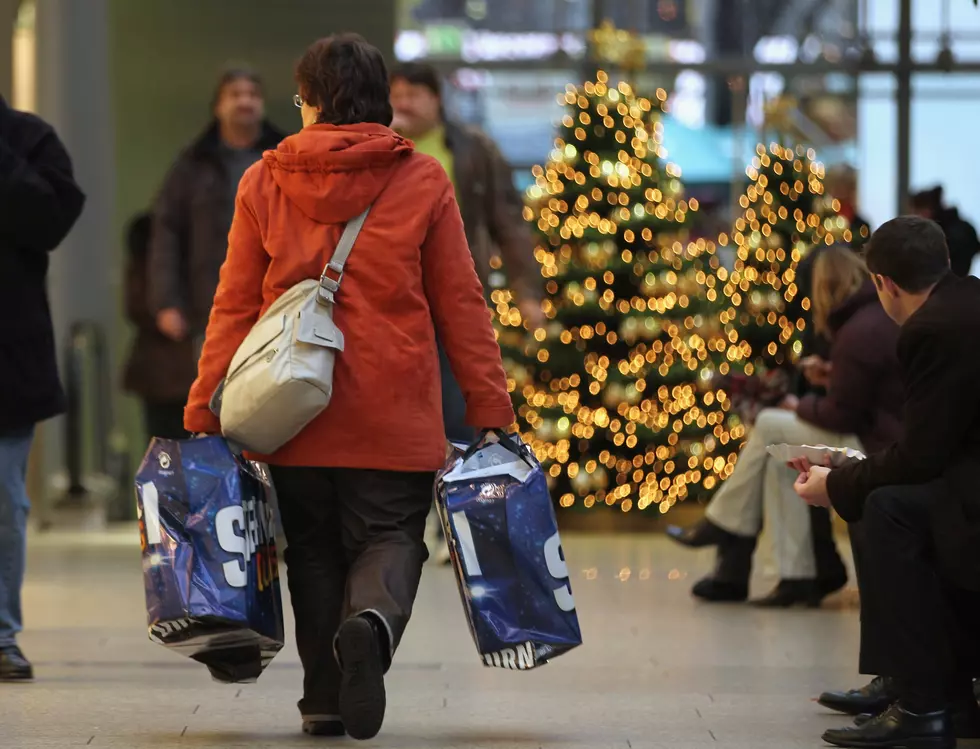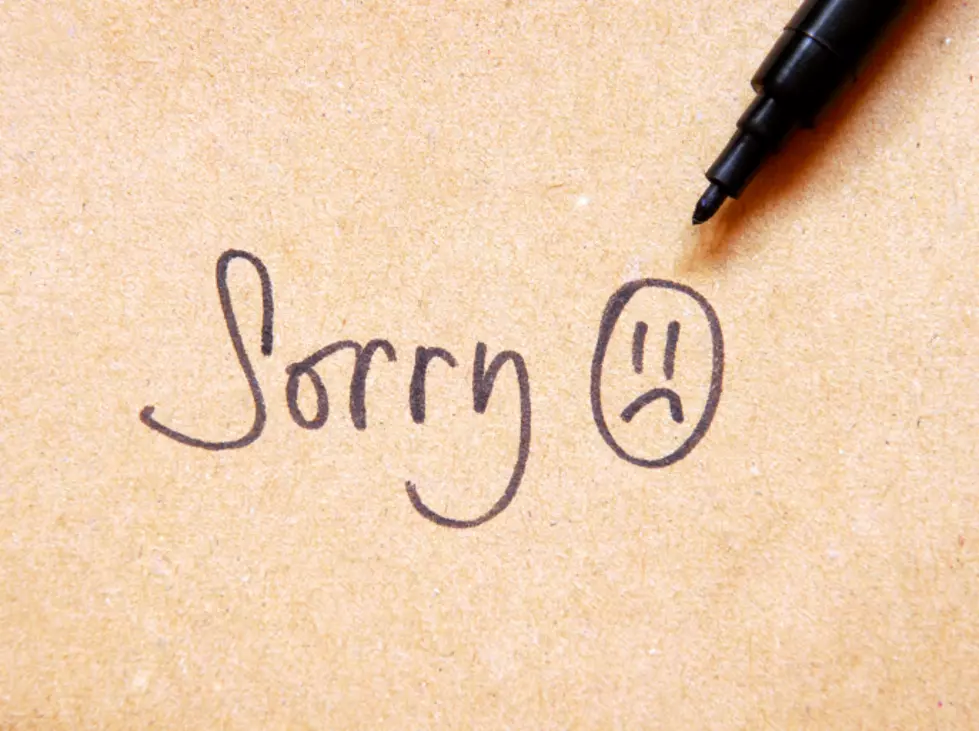
Calcasieu Parish Sales Tax Among Highest In Nation – Why?
Where does the money go?
To put things in perspective before we get started, New York City has a combined state and local sales tax rate of 8.875%. Houston’s combined rate is 8.25%. Even Boston over in “Taxachusetts” has a combined rate of just 6.75%. You would think some of the biggest, most densely-populated cities in the world would also have some of the highest sales tax rates in the country, right? After all, their local governments have to fund massive public works projects with those tax dollars, just to keep their cities moving.
You would think that...and you'd be wrong.
With an average combined sales tax rate of 9.9%, Louisiana residents shoulder the highest sales tax burden of any state in the country - but it’s even worse for us here in the Lake Area. We're going to focus on Lake Charles right now, but the combined state and local sales tax rate of every city and town in Calcasieu Parish is a whopping 10.75%. In contrast, some of the biggest cities in our state have lower sales tax rates than ours. Baton Rouge and New Orleans both pay 10%, while Shreveport pays just 9.6%, and Lafayette’s combined rate is only 9%.
WHY?
That’s a question no one can really answer without being slapped around with a thousand special interest counter-arguments, but the short version is that the city of Lake Charles makes most of its money from its sales tax. The proposed budget for 2016-2017 shows that the sales tax accounts for 65.7% of general fund revenue, with property taxes and franchise & license taxes making up only 12.6% and 12% of the fund, respectively. (Every other source of revenue goes down to single digits or less than 1%.)
So where does all that money go? Well, it’s a pretty even split between the Police Department (30%), Public Works (26%), and the Fire Department (24%). Combined, these three departments are budgeted to receive 80% of the general fund. The remaining 20% is divided between General Services (8%), General Government (5%), Planning and Development (4%), Finance (3%), and Human Resources (less than 1%).
That doesn't sound too bad. We all need police and firefighters, and Public Works receives the second highest amount of funding, which should go a long way toward fixing things like our massive drainage problems that leave our roads flooded after even the shortest afternoon shower. That's a good thing, right?
Well...
Out of all that departmental funding, the lion’s share goes toward the paying the high cost of salaries and fringe benefits at a combined total of over 63.5% of the general fund. In actual dollars, that’s around $43,050,485 of $67,796,039 going toward salaries, which only leaves about $24,745,554 for literally everything else.
However, before we move on to that, it’s worth noting some of the raises city employees received January 1, 2016:
- Full-time Fire Department employees: 10% raise, across the board
- All Police Department employees: 8% raise, across the board in addition to annual 2% longevity increase
- All full-time non-public safety employees: 8% raise, across the board in addition to annual 2% longevity increase
- All part-time and temporary employees: 3% raise, across the board
Now that the city has spent most of its general fund on salaries, what little is left goes toward paying for things rather than paying people. When you stop to consider that just 36.5% of what the city has budgeted from the general fund goes toward funding everything other than salaries and fringe benefits, you start to get an idea of why things are the way they are.
Want to know why our roads flood every time it rains for half an hour, or why there are so many potholes and other crumbling bits of infrastructure all around the city? We do, too. But we suspect it has something to do with how things like maintenance and materials account for just 6% of general fund expenditures. That’s only $4,067,762, which might sound like a lot, but when it comes to something like fixing just one mile of road, it might as well be a couple of nickels for all the good it does.
Maybe we’re wrong here, but it sure seems like a city with one of the highest sales tax rates in the nation should have great roads and fantastic schools, right? So why are we stuck with streets that flood constantly and schools so desperate for cash that a new fundraising packet comes home in my kid's backpack every other day?
Look, the cost of paying employees is always going to be one of the biggest dings in any budget, whether you’re talking about a major corporation or a city government - we get that. It's why the first stop on the cost-cutting train in the corporate world is Layoff Land: because it works. Paying people costs a lot of money, so companies are always trying to find ways to hire the fewest employees at the lowest wages possible who can still get the job done. It's also why fast food places will replace as many workers as it can with self-service kiosks as soon as it becomes more cost effective to do so, regardless of how high or how low the minimum wage is. Still, something stinks here in Lake Charles, and we’re not talking about whatever that weird smell is that gently wafts over the city whenever the wind is right.
Why are we paying city employees so much when most area businesses are tightening their belts, freezing wages and new hires, and definitely not providing 10% raises on top of annual 2% increases to their employees? No area business can afford to do that with retail rent skyrocketing while customers have less and less money to spend on anything, thanks to low wages, outrageous rent and high taxes. After all, business relies on the free market to sustain growth, while the government can just raise taxes whenever it needs more money. And it always needs more money.
Which is why, when faced with any budget shortfall - such as not being able to fund adequate drainage in the city to prevent our roadways from flooding every time a mosquito sneezes - the city’s answer is always to raise taxes, usually in some small, incremental way that doesn't seem too awful. After all, adding 0.25% or 0.50% to the tax rate every couple of years or so keeps the sticker shock small in the same way that slowly raising the water temperature tricks the proverbial frog into not realizing it’s being boiled alive until it's too late to do anything about it.
The state doesn’t get a free ride here, either. Remember that 17¢ gas tax hike so many people seemed to want really bad, claiming it was the only way we’d ever fix our state's roads and bridges? Thankfully, it died in the House, but the point is that we can keep raising taxes all we want, but if we don’t start spending tax dollars where they're actually needed, nothing is ever going to change. If the money keeps being siphoned off to line people's pockets before it ever even gets to where it’s supposed to be going, how are we ever going to fix anything?
So, yeah. While our roads flood and our bridges crumble and our public schools are forced to hold new fundraisers every other day like they’re trying to make a living out on the street with a tin cup and an eyepatch, Lake Charles is making most of its money through its outrageous sales tax, which is higher than every major city in the entire country.
And don't think it can't get any worse, because it can. It probably will, too. After all, developing the Lakefront isn't going to come cheap, and somebody has to pay for it. The maximum local sales tax rate in Louisiana can go as high as 7% (for a combined state and local total of 12%). We're currently at 5.75%, which means there's still room to grow into that last 1.25%.
When you add our crazy sales tax to facts such as how wages in Lake Charles have actually gone down over the past decade, or how we're paying 83% more in rent than we were just ten years ago, and things aren't looking good for us working stiffs just trying to make ends meet in this happy little city of ours. When will we get to the breaking point? Will the bust come before the boom we keep hearing about finally gets here, or is the whole thing just one giant ponzi scheme?
Something is wrong when we’re paying more than people in New York, and we don’t even have subways.
Something is wrong when we’re paying more than people in Boston, and we don’t even have a Freedom Trail or that bar from Cheers.
Something is wrong when we’re paying more than people in Houston, and we don’t even have…well, whatever it is that makes people like Houston so much.
Something is wrong.
More From Cajun Radio 1290 AM






